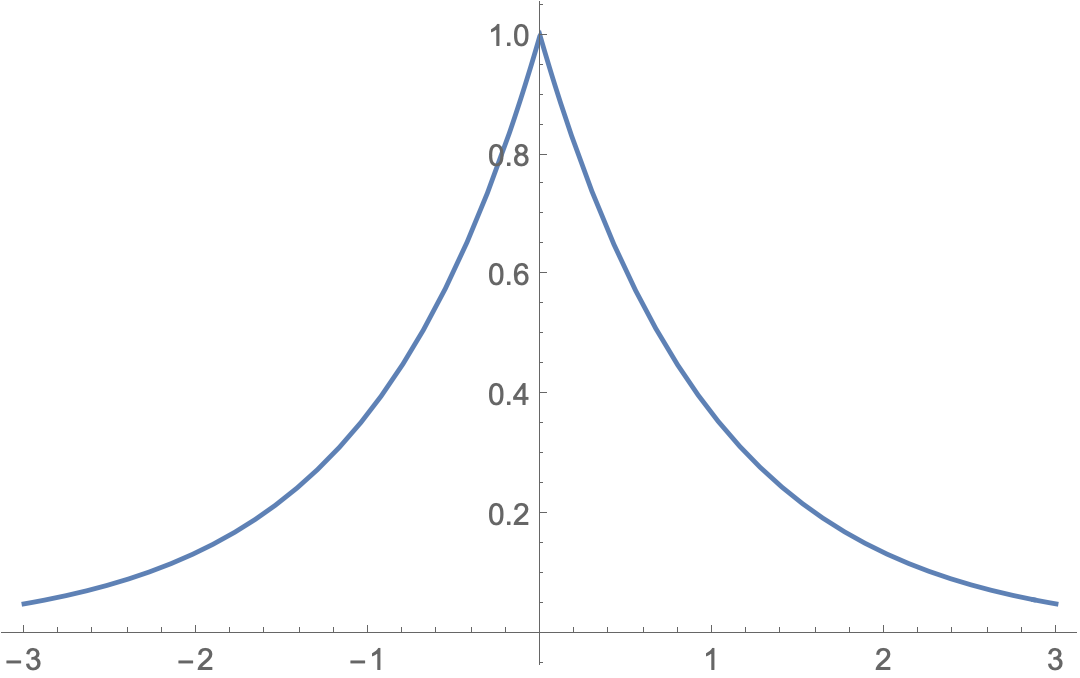my question has two parts (please check everything for any mistakes):
The Fourier transform of
FourierTransform[Exp[-a Abs[t]], t, ω,
FourierParameters -> {1, -1}]=(2 a)/(a^2 + ω^2)
which is the correct answer.
1.How to get its Inverse Fourier Transform correctly?
InverseFourierTransform[2 a/((a^2) + (ω^2)), ω, t,
Assumptions -> a > 0 , FourierParameters -> {1, -1}]=E^(a t) HeavisideTheta[-t] + E^(-a t) HeavisideTheta[t]
is it correct?
- How to display the Inverse Fourier Transform without any
HeavisideTheta?(or anything else which makes the answer different from the initial function) so the answer looks like the initial theoretical notation: Exp[-a Abs[t]].
Thanks

